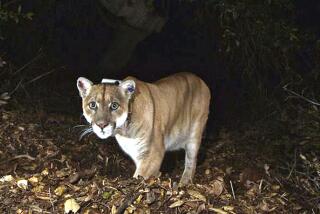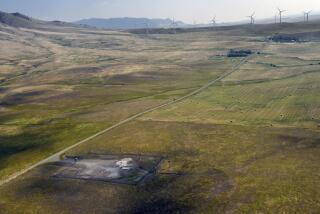Navy Concerned Over Wilderness Bill
- Share via
RENO — Navy officials expressed concern Thursday that pending wilderness protection legislation for hundreds of thousands of acres in Nevada and other states might interfere with military flight training.
“The Navy has concerns about its ability to use airspace over wilderness areas for carrier air-wing training and we are currently working with Congress to address those concerns,” said Capt. Rex Rackowitz, commander of the Naval Air Station near Fallon, 60 miles east of Reno.
But a spokesman for Sen. Harry Reid (D-Nev.), said the senator is confident that his Nevada wilderness bill will pass when it comes before the Senate for a vote in coming days.
On Wednesday, Sen. Malcolm Wallop (R-Wyo.) temporarily halted action on the bill so Pentagon officials could visit the Fallon base to discuss the legislation’s possible effect on flight training.
An aide to Wallop said Wednesday that the senator plans to delay action on the bill until he gets the report from the Fallon visit.
Craig Varoga, Reid’s press secretary, said Reid wasn’t aware Wallop put a hold on the bill. Wallop voted against the wilderness bill when it was approved by the Energy and Natural Resources Committee on Aug. 2. Under Senate rules, a single objection can block a bill, at least temporarily.
Alta Toquima, Arc Dome, Table Mountain and Currant Mountain are proposed wilderness areas in the bill and within regions of central Nevada that the Navy wants to use for air training, often flying below 2,000 feet over the ground.
FAA Rules
Federal Aviation Administration rules, however, prohibit planes from flying within 2,000 feet of a structure or lower than that in a wilderness area.
The bill would set aside about 1% of Nevada’s 71 million acres as wilderness--or about 733,000 acres. The legislation also would release 2.4 million acres for mining, ranching and recreation.
Now, Nevada has only one wilderness area, the 64,667-acre Jarbidge Wilderness, established in the 1964 Wilderness Act.
More to Read
Sign up for Essential California
The most important California stories and recommendations in your inbox every morning.
You may occasionally receive promotional content from the Los Angeles Times.













